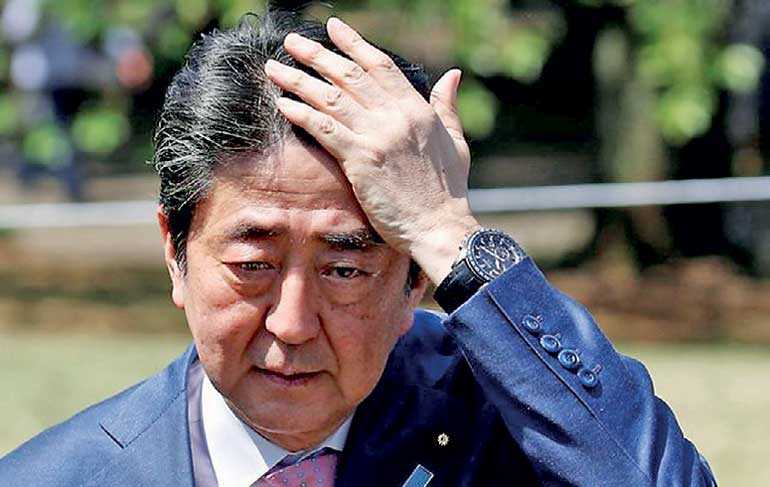Thursday Feb 26, 2026
Thursday Feb 26, 2026
Tuesday, 24 April 2018 00:00 - - {{hitsCtrl.values.hits}}

TOKYO (Reuters): Voter support for Japanese Prime Minister Shinzo Abe, battered by accusations of cronyism and other government missteps, slipped in three newspaper surveys published on Monday, as opposition parties demanded that his finance minister resign.
Abe’s ratings fell three points to 30 percent in a poll by the Mainichi newspaper. The conservative Yomiuri put his support at 39 percent, also down three points, while the right-leaning Sankei showed a drop of 6.7 points, to 38.3 percent.
The three results were in contrast to firm backing from a majority in the business community shown in a Reuters poll.
The sinking public support is dampening Abe’s hopes of winning a third term as leader of his ruling Liberal Democratic Party (LDP) in a September vote he must win to stay in office, and has triggered speculation he may step down sooner.
The surveys were the first since Junichi Fukuda, the finance ministry’s top bureaucrat, stepped down last week after allegations of sexual harassment of female journalists, though he denied them.
Opposition parties have increased calls for the resignation of Finance Minister Taro Aso, a close ally of Abe, after Fukuda quit.
The opposition has threatened not to attend parliamentary debates unless Aso quits, possibly delaying legislation, including labour reform, that was watered down after a separate scandal.
About half of voters agree that 77-year-old Aso, who is also deputy premier, should step down, the two polls showed.
Asked about the calls for Aso to quit, Chief Cabinet Secretary Yoshihide Suga told reporters, “After the problem is clarified, I want him to take the lead to prevent recurrences and work to regain trust.”
Fukuda denied a report this month by weekly magazine Shincho that he sexually harassed several female reporters and said he would sue the publisher. The women have not come forward publicly, a common response in a country where women victims of sexual harassment fear being blamed themselves.
The case is one of several challenges facing Abe, who returned to office for a rare second term in December 2012, pledging to bolster Japan’s defences and reboot the economy.